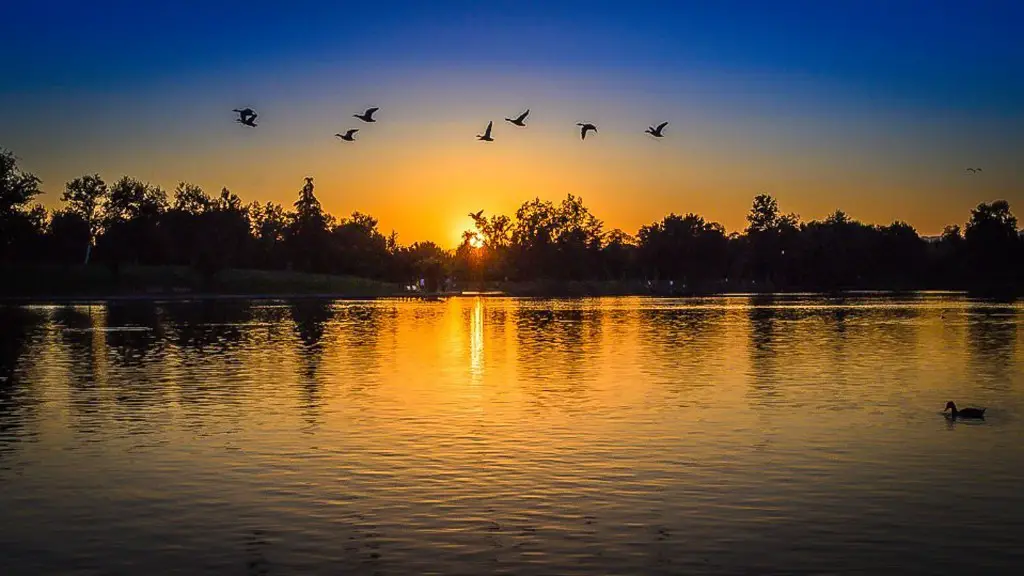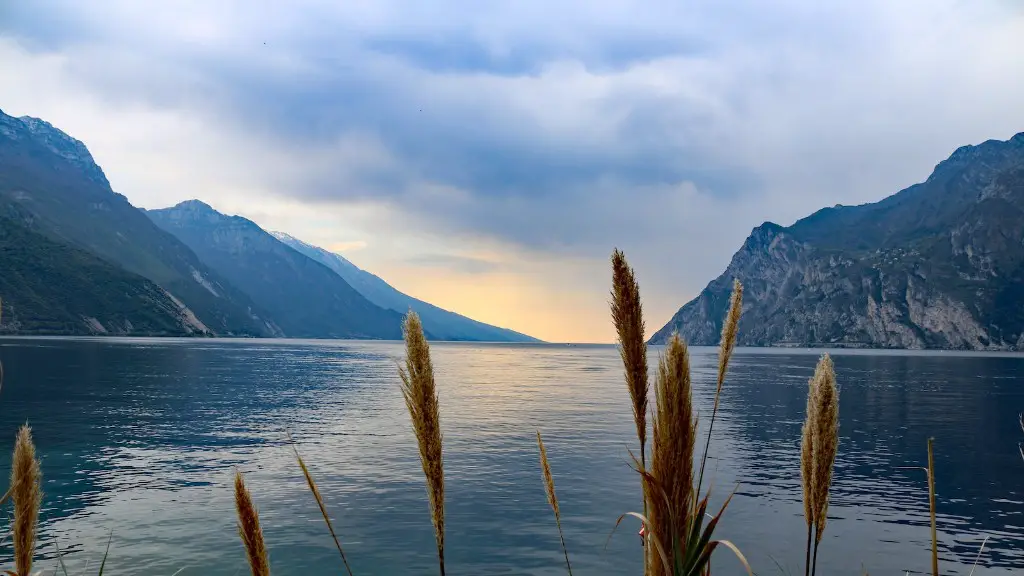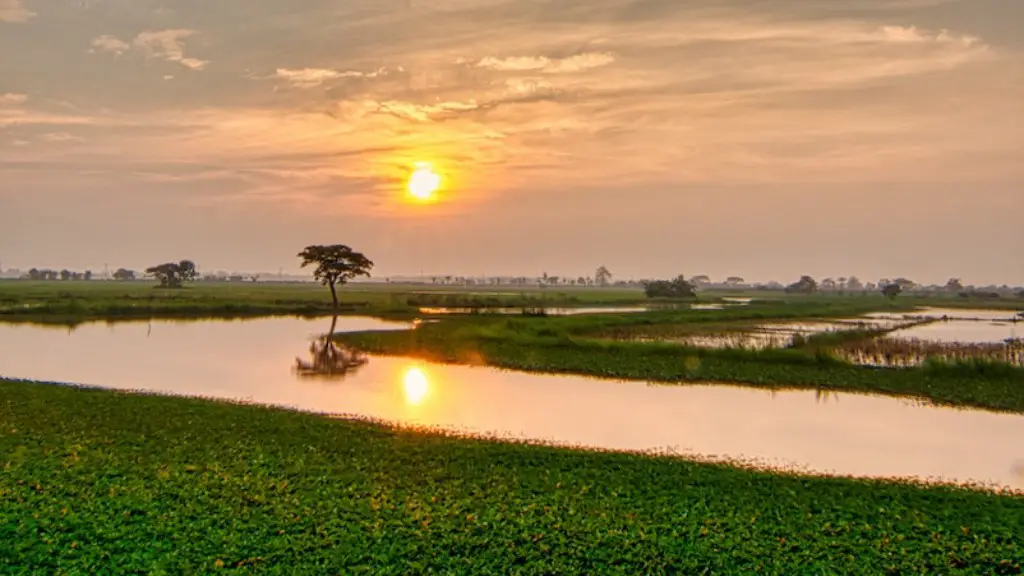The Nile River
The Nile River is one of the longest rivers in the world, traveling through Africa and into the Mediterranean Sea. It stretches for 6,853km (4,258 miles) and is formed by two main tributaries, the Blue Nile and the White Nile. Generally speaking, the White Nile originates from the Great Lakes region of Central Africa, while the Blue Nile originates from the Ethiopian Highlands and joins the White Nile at Khartoum, Sudan.
Because of its length, many historians and scientists believe that the Nile has been a determining factor in human history. As early as 2700 B.C., Egyptians built civilizations along the river, and many ancient scholars such as Herodotus have documented their involvement with the Nile. Furthermore, the river provides an example of how different cultures can co-exist along a shared body of water.
Historians and scientists now speculate that the Nile River played an important role in the evolution of early humans by making certain parts of Africa habitable. Today, nearly 400 million people rely on the Nile River for economic and recreational activities, making it a lifeline for many African countries. With such importance, governments and non-governmental organizations have implemented various initiatives to sustain this important resource.
The most recent of these initiatives is the Nile Basin Initiative (NBI), which was established in 1999 with the purpose to promote cooperation between the riparian countries and the equitable use of the Nile River. These initiatives are focused on using the resources of the Niles’s basin sustainably, protecting the river from mismanagement and environmental concerns. These initiatives have been successful in increasing the cooperation and harmonizing the policies and regulations of the basin.
Though the Nile River is an essential resource for many African countries, it is also a potential source of conflict. The river’s water is shared by 11 different countries and each country has different interests in how they use the river’s resources. Some countries are dependent on the resource, while others are eager to exploit it. Therefore, it is important for all parties to use the Nile’s resources responsibly.
Impact of Overpopulation on the Nile River
The Nile River is under immense pressure due to the rising population in the various riparian countries. With the population in these countries increasing at unprecedented rates, the Nile basin is also under an immense pressure from agricultural needs, industrial and urban growth, as well as energy development. This has had severe implications on the water levels and overall use of the river’s resources.
Over the years, Egypt has been particularly aggressive in its approach towards harnessing the Nile. Egypt has sought control over the river in the region and has installed several dams upstream. Countries like Ethiopia, on the other hand, have voiced their concerns regarding Egypt’s actions and have called for fairer share of resources.
The growing tensions between different countries in the region has placed the Nile River in precarious situation. With a growing population, demands for resources has become higher and countries vying for more access and control over the Nile has created an atmosphere of mistrust. This has raised the fear of worsening water scarcity and disputes over water.
To combat the strain on resources, experts are advocating for sustainable and collaborative solutions to better utilise and share the resources of the Nile. It is essential to have efficient management systems in place, which can ensure fair distribution of resources, while preserving the environment. As the population rises, such systems will play an important role in ensuring access to resources.
Effect of Climate Change on the Nile River
The effects of climate change on the Nile River are of great concern to experts. As the climate gets warmer, many of the upstream tributaries are drying up. This has caused a decrease in the river’s water flow, reducing the ability to use the river for various purposes such as powering dams or irrigating fields.
It is essential for countries to understand the implications of climate change on the Nile River and assess their long-term strategies for managing the resources. This includes finding ways to cope with the changing weather patterns such as introducing alternative water sources or improving water management policies.
The effects of climate change are immense and are likely to be felt by all countries in the Nile basin. To ensure the sustainability of the resources, it is essential for governments to collaborate and share the resources responsibly.
Protection of the Nile River
Governments in the Nile basin have taken the initiative to put in place various policies to protect the Nile and reduce pollution. These policies are designed to better manage the river’s resources and ensure their sustainability.
One of the main goals of the policies is to better utilise and preserve the river. This includes improving water management policies, introducing efficient irrigation systems, and improving waste management. These measures will help to reduce the strain on the resources and ensure their sustainability.
The governments are also working together to introduce laws and regulations to help protect the river from pollution. This includes introducing regulations to limit pollution from industries and cities and ensuring that any wastewater is appropriately managed.
Overall, it is essential for governments to come together and implement effective policies to protect and preserve the Nile River. This will not only ensure the resources are sustainably utilised but also allow the people to enjoy the natural beauty of the river for generations to come.
Nile Basin Initiative
The Nile Basin Initiative (NBI) is an example of successful cooperative management efforts in the Nile basin countries. This group was established in 1999 with the main aim of promoting cooperation and sharing of the Nile’s resources.
The NBI has been successful in increasing the cooperation between the riparian countries and harmonizing the policies and regulations of the basin. This initiative is a testament to the importance of shared resources, collective management and cooperation between different countries.
The NBI has also developed numerous projects aimed at furthering the development of the basin. These include projects to better manage the resources and ensure their sustainability. This includes improving irrigation and conservation techniques, improving infrastructure and introducing modern technologies for water management.
The NBI is an example of how cooperation and collaboration can lead to successful outcomes that benefit all countries in the basin. It is a testament to the fact that with the right approach, shared resources can be managed efficiently and sustainably.
Safeguarding the Future of the Nile River
The Nile River is an essential part of Africa’s history and culture and is a source of livelihood for millions of people. To ensure its future, it is important for the riparian countries to work together and come up with shared management systems.
The challenges faced by the Nile basin countries are immense and it is essential for governments to collaborate and introduce effective policies to ensure the resources are managed efficiently. Introduction of improved water management policies, efficient irrigation systems, and better waste management will be key steps in ensuring the sustainability of the resources.
In addition, it is important to ensure the protection of the river from pollution and overexploitation. This can be achieved through the introduction of laws and regulations to reduce the effects of such activities on the environment.
With the right approach, it is possible to protect the resources and ensure their sustainability for future generations. It is essential for countries to come together and use the resources responsibly, to ensure the future of the Nile.





